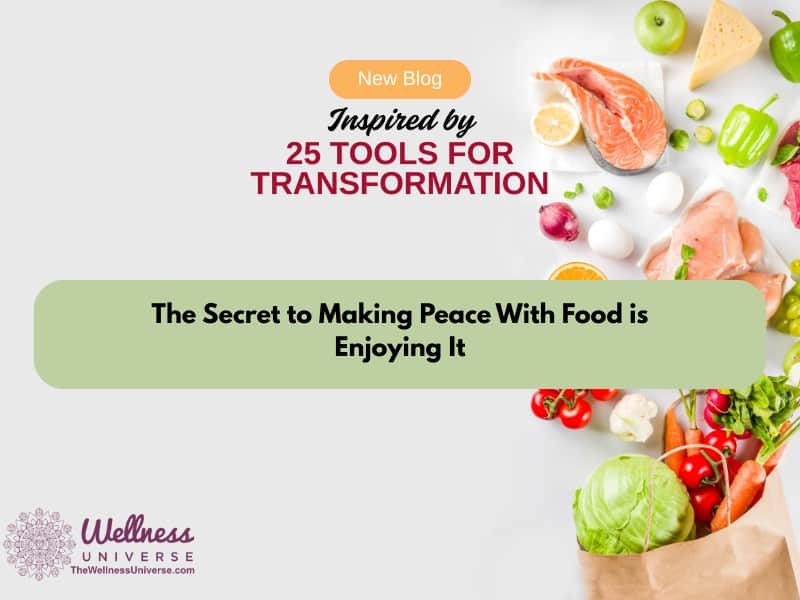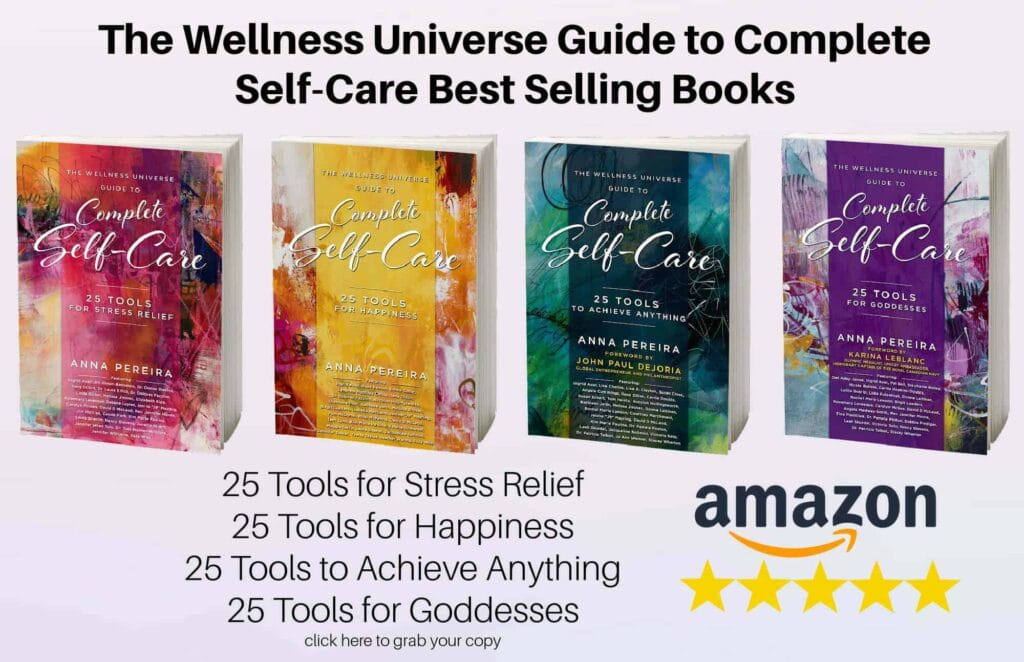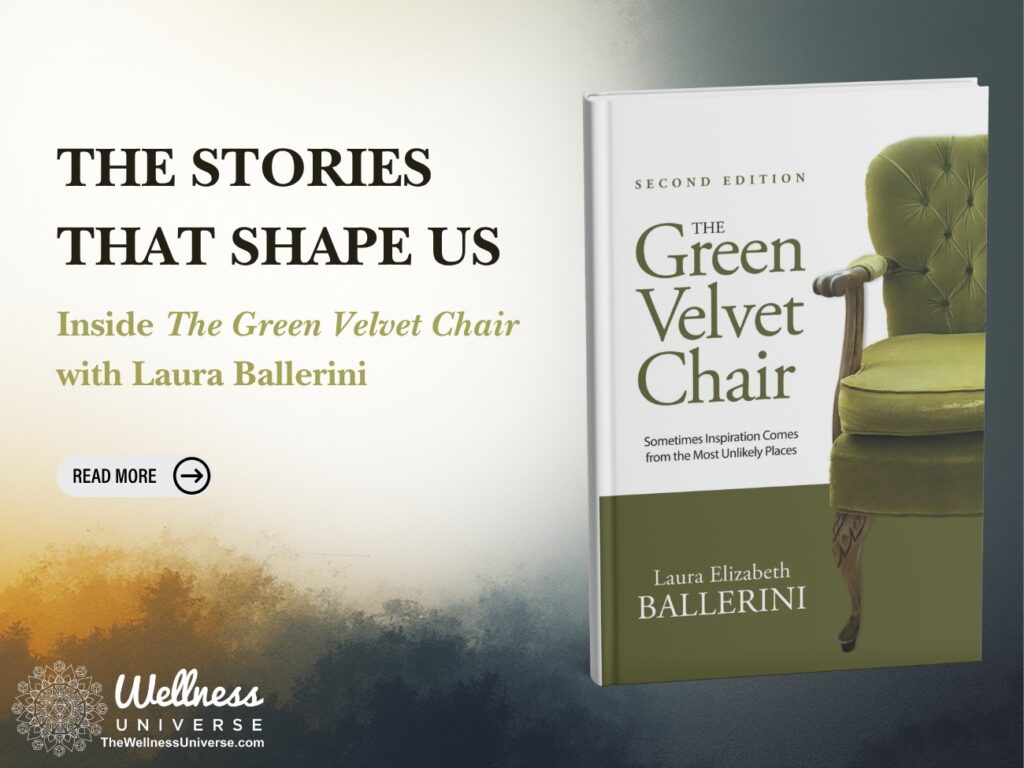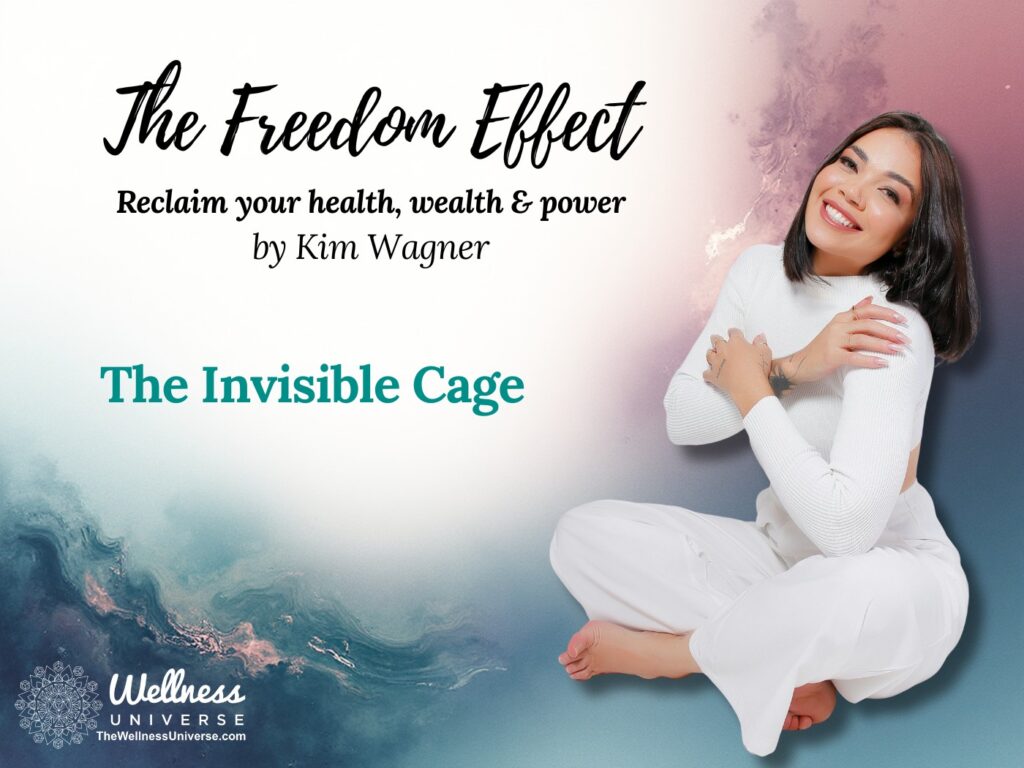Blog written by Gillian Hood, an Intuitive Eating counselor and health & wellness coach who supports women in breaking free from disordered eating, body hatred, and a life revolving around food. Gillian is a co-author on “The Wellness Universe Guide to Complete Self-Care: 25 Tools for Transformation.”
Do you love food?
If so… do you eat food like you love it?
Or, do you have a love/hate relationship with food?
I thought I loved food and eating it. However, my relationship with food was a roller coaster ride of chaotic eating and painful emotions:
- Feeling guilty or ashamed for eating so-called “bad” foods
- Confusion over what I “should” or “shouldn’t” eat
- Skipping meals to “make up” for what I ate the day before
- Believing I had to “earn” food through exercise & dieting
These common but problematic beliefs and actions led to a love/hate relationship with food, and eventually an eating disorder.
My challenges didn’t begin from dissatisfaction with how my body looked, which often precedes an eating disorder. But, it didn’t take long to learn that my body didn’t fit society’s beauty standards and needed to be “fixed.”
Culture dictates the “right way” to have a body, and the diet, fitness, and beauty industries make billions each year enforcing this message. We respond with attempts to make our bodies conform to these standards.
This focus on what’s wrong with your body inevitably morphs into what’s wrong with YOU. If you eat what you “should,” you’re “good” for that moment in time. But one small slip and you’re a “bad” person who must be punished with excessive exercise, skipping meals, or worse.
This vicious cycle continues as we turn to food to feel better, followed by guilt, shame, and a need to make up for what we’ve eaten.
The Way Out
The only way out of the cycle is to stop:
- Stop beating your body into submission.
- Stop the deprivation and restriction of food.
- Stop trying to manage “calories in/calories out,” which is a useless endeavor that can’t be won.
This is a tall order. When I first learned that my efforts to intentionally lose weight or control my eating were backfiring, I was in denial. And I can imagine what you’re thinking, too.
However, many years later, I remain fully recovered from Binge Eating Disorder, compulsive exercise, and orthorexia (an obsession with “clean eating”).
I’ve dedicated my life and career to helping others break free from the psychological and physical damage that diet culture and its friends continue to cause in pursuit of profits.
Where to start? Good question!
In my upcoming workshop, “A Transformational Journey: Find Peace With Food,” I’ll share my Mutual Trust™ approach to making peace with food and your body.
You’ll learn what Mutual Trust means, and you’ll experience what it can do for you in a special Mindful Eating Experience.
Why Mindful Eating?
Mindful eating involves using mindfulness to choose what, when, where, how, and how much we eat. Mindfulness, as defined by Jon Kabat-Zinn, is: “paying attention on purpose, in the present moment, non-judgmentally.”
The purpose of mindful eating is to gain maximum pleasure from eating and walking away satisfied. You enjoy the food as you pay attention to it, leading to satisfaction and feeling comfortably full shortly after. Satisfaction and pleasure allow you to stop eating, knowing you’ll eat again in a few hours.
The Benefits of Eating Mindfully
Eating mindfully promotes a positive relationship with food and eating. This process has been extensively studied, showing multiple benefits, including:
- Improved interoception (awareness of the cues and signals from the body)
- Flexibility in how we respond, behave, and act related to food and eating
- An increased ability to direct and sustain our mental control and focus
- Developing more curiosity, kindness, and patience with ourselves and the challenges around us
- More pleasure & satisfaction from eating (leading to stopping when satisfied, reducing problematic eating behaviors)
- Better health outcomes, shown in a variety of mindful eating and intuitive eating studies
By reducing distractions while eating, pleasure and enjoyment increase. Sitting calms the nervous system, promoting digestion and absorption. Slowing down, including thoroughly chewing and taking smaller bites, allows for savoring the flavors, increasing overall pleasure and satisfaction.
Mindful eating reduces guilt or shame about what or how much we’ve eaten, and therefore, improves our relationship with our body and ourselves.
Experiencing Mindful Eating
In the workshop, we’ll experiment with mindful eating. Bring any food you would like, but please consider these ideas:
- Bring something that will taste good at room temperature. We may not eat until over halfway through the class.
- Bring a food you truly enjoy. If it’s a food you think is “bad” or it will cause you anxiety or guilt, bring a single portion or consider something else that you enjoy for this experience (you can challenge yourself later).
- Bring enough of your chosen food(s) to enjoy them. However, keep in mind we aren’t having a whole meal experience in this workshop.
- If possible, come to the workshop feeling neutral or with early signs of hunger (3 to 5 on a hunger scale). Please avoid getting overly hungry, as this will make it challenging to be mindful or notice your body’s signals.
- Leave your inner critic and judgments at the door… we welcome your curiosity, self-compassion, and open-mindedness!
My intention for our time together is to support you in:
- Releasing toxic cultural beliefs and messages about food, eating, and your body to make room for a peaceful and nourishing relationship with food and compassion and appreciation for your body.
- Reconnecting with the wisdom of your body and eating for pleasure through a supportive and safe mindful eating experiment and experience.
- Rediscovering the pleasure of eating without fear, guilt, or shame, knowing your body is on your side and there’s freedom in staying connected to it.
After the mindful eating experience is complete, I’ll stop the recording and open the space for you to share your experience and to ask any questions.
I hope to give you a taste (pun intended!) of what a peaceful relationship with food can be. Food is meant to be pleasurable… It’s why we eat!
By focusing on the pleasure and satisfaction of eating, you’ll release the guilt, shame, willpower, and other harmful beliefs and behaviors.
I’ll leave you with a quote from Ellyn Satter, RD, from her book, How to Get Your Kid to Eat… But Not Too Much. She defines what “normal eating” looks like. I hope it gives you hope for what your relationship with food can be as well:
Normal eating is being able to eat when you are hungry and continue eating until you are satisfied. It is being able to choose food you like and eat it, and truly get enough of it… not just stop eating because you think you should. Normal eating is being able to use some moderate constraint on your food selection, to get the right food, but NOT being so restrictive that you miss out on pleasurable foods. Normal eating is giving yourself permission to eat sometimes because you are happy, sad, or bored, or just because it feels good. Normal eating is three meals a day, or four or five, or it can be choosing to munch along the way. It is leaving some cookies on the plate because you know you can have some again tomorrow, or it is eating more now because they taste so wonderful. Normal eating is overeating at times, feeling stuffed and uncomfortable. It is also under-eating at times and wishing you had more. Normal eating is trusting your body to make up for your mistakes in eating. Normal eating takes up some of your time and attention, but keeps its place as only one important area of your life.
In short, normal eating is flexible. It varies in response to your hunger, your schedule, your proximity to food, and your feelings.*
If this sounds like the relationship you’d like with food, I hope to see you at the workshop!
Register for my “Find Peace With Food” workshop and save 30% as my gift for reading this blog! Use code “GillianH30” to save!
* Satter, Ellyn. How to Get Your Kid to Eat– but Not Too Much. Bull Pub. Co. ; Distributed in the U.S. by Publishers Group West, 1987.
Connect with Gillian on The Wellness Universe, and follow her on LinkedIn and Facebook.
A Transformational Journey Workshops
Unlock the full transformational journey with all 29 powerful workshops!
Find Peace with Food
with Gillian Hood
Experience Mutual Trust™: Finding Peace with Food and Your Body, Gillian’s tool from The Wellness Universe Guide to Complete Self-Care: 25 Tools for Transformation. In this live session, you’ll be guided through the practice that helped release guilt, quiet body shame, and replace control with trust and compassion. Attendees will reconnect with their body’s wisdom, rediscover pleasure in eating without fear, and walk away knowing freedom is possible when you stay attuned to yourself. Mark your calendar.
📅Tuesday, October 14, 2025
⏰7:00 pm ET/4:00 pm PT
Register Now for the Live Workshop
#1 BEST SELLER AVAILABLE NOW!
The Wellness Universe Guide to Complete Self-Care, 25 Tools for Transformation
The Wellness Universe Guide to Complete Self-Care: 25 Tools for Transformation officially launched July 8, 2025! Inside, 35+ heart-led experts share real stories and powerful self-care tools to support your healing, resilience, and personal growth. Whether you’re navigating change or ready to rise to your next level, this book offers practical guidance and soul-deep inspiration to help you thrive.
For a limited time, get your copy at this special launch price. Purchase your eBook now or paperback!
Vibrant Wellbeing, Uplifting Your Wellness
Guest: Jennifer Moore
Topic: Compass of the Soul: Staying Grounded When Life Gets Chaotic
Health expert guests share practical tips, hands-on learning, and deep insights, including physical, emotional, and spiritual health tips.
Join us live: https://bit.ly/VibrantWellbeing
The Wellness Universe is your resource for health, wellness, well-being, and transformation. We serve and support professionals who make the world a better place and individuals and groups who seek their best life.
A woman owned company; having the vision in 2013, Anna Pereira launched the first directory in 2015 bringing together a community of members making the world a better place to be found by those seeking their best life. The Wellness Universe has grown since then to be a one-stop shop for total wellness support! We are a vetted community, online directory, book publisher, resource center, event producer, content platform, and so much more, supporting whole-health and well-being on a global scale.
The Wellness Universe is a home that connects industry professionals in the health, wellness, and well-being fields to seekers of total well-being. WU provides our WU World-Changer members with peer support, Wellness Universe produced events (live and online), projects, visibility, business mentoring, and community. Through The Wellness Universe our WU World-Changer members serve WU Friends, seekers of health, wellness and transformation, with coaching, workshops, content and more.
The Wellness Universe provides individuals and groups seeking their best lives with access to our members, wellness content, educational resources, and guidance in all areas of wellness to transform visions of how they want to live life into the life they experience.
Through the directory, WU Featured Blog, SoulTreat wellness retreat, Self-Care Books, group well-being programs, and online learning center, The Lounge, The Wellness Universe provides many avenues to support whole health, mind, body, spirit and planet.
Join us today! Wellness Professional or Seeker of Your Best Life










Thank you, Gillian, for this great article. I love how you reframe eating as an act of mindfulness and self-love rather than guilt or control. The idea of cultivating Mutual Trust™ with our bodies and food feels so freeing. And reminds us that nourishment and pleasure can coexist beautifully. Thank you for guiding others toward peace and presence with every bite.
Excellent article Gillian. So many good explanations of why we have “love/hate” relationships with food. And how we need to learn to eat with compassion and appreciation for our bodies.
As a CN myself, I totally agree with the parts about Mindful Eating. It’s important and I’m glad to see it here as a good reminder that we don’t have to fear food, but enjoy it by choice, and be grateful.